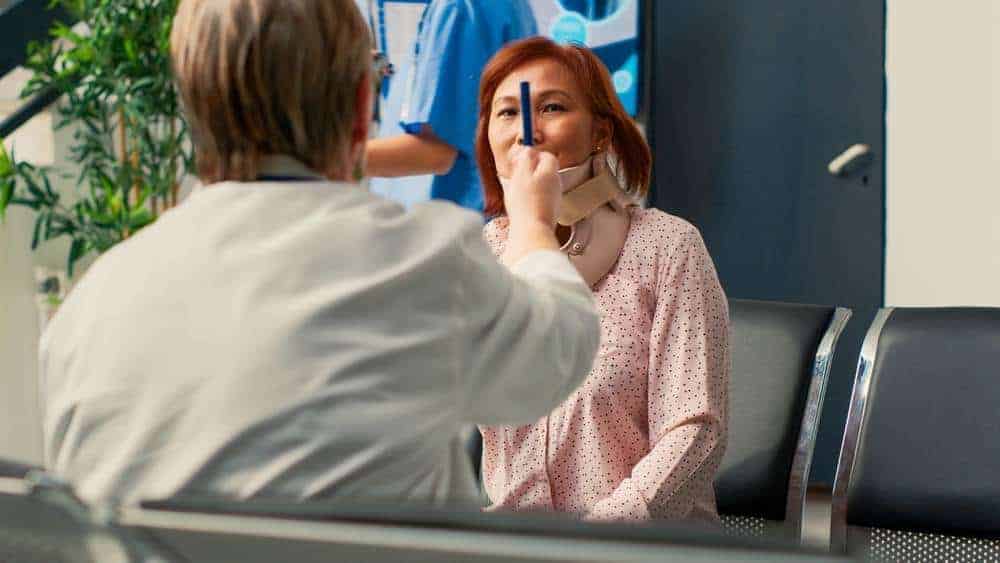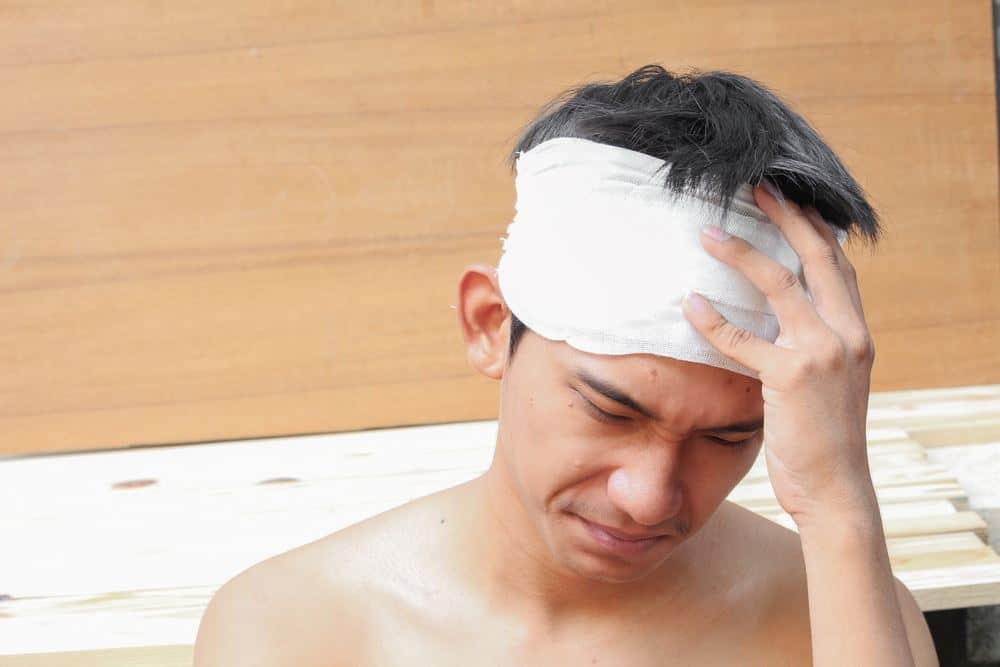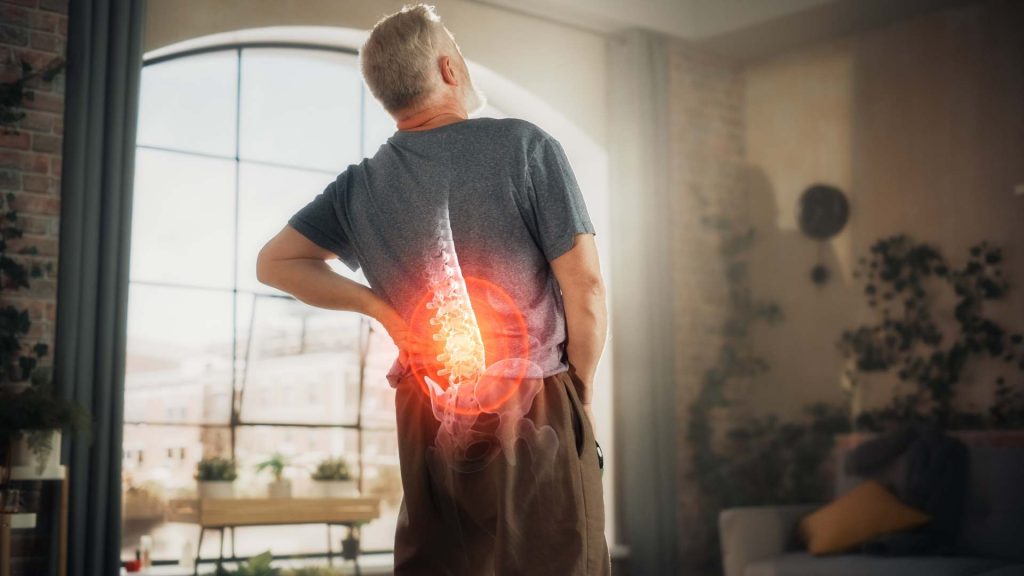A head injury can leave you feeling pain, discomfort, and other symptoms that last for a lot longer than you might expect. Whether you hit your head from a slip and fall accident or during a car accident, you might not realize the severity of your head injury until you start to experience symptoms. That’s why we always recommend you get checked out by a trusted doctor any time you hit your head. Even what seemed like a minor bump on the head could cause uncomfortable symptoms and have a lasting impact on your health and well-being. At AICA Orthopedics, our team of car accident doctors will examine your head injury and determine an appropriate diagnosis and treatment plan so you can experience lasting relief from your symptoms.
Types of Head Injuries
 A head injury refers to any type of trauma that causes damage to your skull, scalp, or brain. The scalp refers to the thick layer of skin that covers your head, while your skull is the thick bone structure that protects your brain. Damage to bones, organs, tissues, or blood vessels can all contribute to a serious head injury. Here are three main types of head injuries and what parts of your head and the rest of the body they may impact.
A head injury refers to any type of trauma that causes damage to your skull, scalp, or brain. The scalp refers to the thick layer of skin that covers your head, while your skull is the thick bone structure that protects your brain. Damage to bones, organs, tissues, or blood vessels can all contribute to a serious head injury. Here are three main types of head injuries and what parts of your head and the rest of the body they may impact.
Concussion
A concussion refers to a type of traumatic brain injury where you suffered a blow or jolt to the head. The most common causes of concussion include car accidents, sports accidents, and slip and fall accidents. If you hit your head or your head gets jostled hard enough, you could end up with a concussion. This type of head injury impacts healthy brain functioning because the blow or jolt to the head causes swelling or bruising.
Skull Fracture
A skull fracture refers to a break of the skull bone. The most common type of skull fracture is called a linear skull fracture, where the bone breaks but does not move. Other types of skull fractures include the depressed skull fracture, where part of the skull becomes sunken in, and the diastatic skull fracture, which is a break along suture lines and is more common in children. The basilar skull fracture is the most serious type, where the fracture occurs at the base of the skull.
Intracranial Hematoma
An intracranial hematoma refers to a blood clot that develops in or around the brain. There are different types of intracranial hematomas depending on the location in the brain, and they can range from mild to life-threatening. An epidural hematoma can occur along with a skull fracture, while a contusion or intracerebral hematoma refers to a blood clot and bleeding on the brain itself.
What Is a Traumatic Brain Injury?
A traumatic brain injury, often abbreviated as TBI, refers to an injury that impacts the brain. The most common causes of a TBI include a violent blow to the head or a sudden shaking or jostling of the head. A traumatic brain injury can also occur if an object cuts deep enough to damage brain tissue. A mild traumatic brain injury can temporarily impact the cells of your brain, while a severe TBI can lead to significant long-term complications or even death. The most common type of traumatic brain injury is a concussion. A sudden blow or jolt to the head can cause your brain to jostle around and collide with the side of the skull, leading to bruising or bleeding on the brain. Falls, car-related collisions, violence, and sports injuries can all cause a concussion or other types of traumatic brain injury. Traumatic brain injuries are categorized as mild, moderate, or severe, and the degree of damage will depend on a few different factors, including the type of injury and the force of impact. A head trauma like a TBI can also cause loss of consciousness, whether for seconds, hours, or even days.
Symptoms of a Head Injury
If you recently suffered a blow to the head, here are some different types of symptoms to look out for and talk to your doctor about as soon as possible. It can take hours or even days for symptoms to appear after a head injury, so it is important to pay attention to how you feel in the days and weeks after a head trauma.
Physical Symptoms
The most common physical symptoms of a head injury include headaches, nausea, and vomiting. You may experience dizziness or loss of balance, and you may notice more drowsiness or fatigue after the injury. Depending on the severity of the head injury, you could also lose consciousness for minutes to hours at a time. A TBI could also cause dilated pupils, convulsions, or seizures, and you may experience a loss of coordination.
Sensory Symptoms
A head injury can also impact your senses. Common symptoms of a concussion and other head injuries include sensitivity to light and sound. Too much noise around you or bright lights can cause an increase in pain and other symptoms after a head injury. You may also notice a ringing in your ears, blurred vision, and even a bad taste in your mouth.
Cognitive Symptoms
After a head injury, you may experience cognitive symptoms like being dazed, confused, or otherwise disoriented. A head injury can make it difficult for you to concentrate after the accident, and you may have difficulty remembering the incident that occurred. Other cognitive symptoms include slurred speech and profound confusion.
Mental Symptoms
A head injury can also impact your behaviors and cause mental symptoms like mood changes or mood swings. You may notice an increase in depressive symptoms or feeling anxious. A head injury can also cause behavioral and mental symptoms like sleeping more than usual, agitation, combativeness, or other types of unusual behaviors.
How Long Head Injury Symptoms Last
 The type and severity of your head injury will impact how long you experience symptoms. The following are examples of how long head injury symptoms could last, though you should always stay in contact with your doctor about your specific symptoms. These are the three types of traumatic brain injuries and how long you might have symptoms of a head injury:
The type and severity of your head injury will impact how long you experience symptoms. The following are examples of how long head injury symptoms could last, though you should always stay in contact with your doctor about your specific symptoms. These are the three types of traumatic brain injuries and how long you might have symptoms of a head injury:
Mild TBI
A mild traumatic brain injury, most commonly known as a concussion, can cause mild symptoms that last for a few days to a week. Some symptoms, like headaches, confusion, and disorientation, may occur right away, while other symptoms can take hours or even days to appear. Delayed symptoms of a mild traumatic brain injury, like dizziness, pain, and sensitivity to light and sound, can last for days at a time.
Moderate TBI
A moderate traumatic brain injury can cause a combination of physical, cognitive, sensory, and mental symptoms that may last longer than a week after the initial injury. Changes in sleep habits, behaviors, or emotions can occur with a moderate TBI, and you could experience the aftereffects for a few weeks.
Severe TBI
A severe traumatic brain injury can cause symptoms as well as long-term effects. Depending on where the trauma occurred in your brain, you could have trouble with physical or mental function. Some examples of how a severe TBI could impact you include speech difficulties, motor deficits, or even an increased risk for dementia later in life. Symptoms of a severe TBI could last for months at a time, and long-term effects could affect you for the rest of your life.
Treating Symptoms of a Head Injury
The sooner you get checked out for a possible head injury, the sooner you can get the treatment and care you need. Doctors have established protocols for managing head injuries to help address your symptoms and attempt to minimize the lasting impacts of something like a traumatic brain injury. Treatment for a head injury will depend on your specific injury, and your doctor will also provide you with treatment solutions to help manage your symptoms. Treatment for a head injury may include managing pain associated with headaches and physical therapy to help you regain balance and coordination as you start to recover. Every person reacts to a head injury differently, so your doctor will create a personalized treatment plan that addresses your specific symptoms to help you experience lasting relief.
Head Injury Treatment at AICA Orthopedics
If you are dealing with headaches after a car accident, visit AICA Orthopedics near you to get checked out for a possible head injury. At AICA Orthopedics, our team of car accident doctors and concussion experts provides comprehensive head injury treatment. We use state-of-the-art diagnostic tools to determine the type and severity of your head injury and create individualized treatment plans for each person. Our team of doctors includes orthopedists, neurologists, chiropractors, and physical therapists who provide you with a multi-specialty approach to your treatment and care. Find an AICA Orthopedics location in metro Atlanta near you and get started today with our trusted team of doctors. Remember: a blow to the head might not seem like a big deal, but it’s always better to be safe than sorry. Our team of head injury doctors will provide you with peace of mind or the treatment you need to recover.





